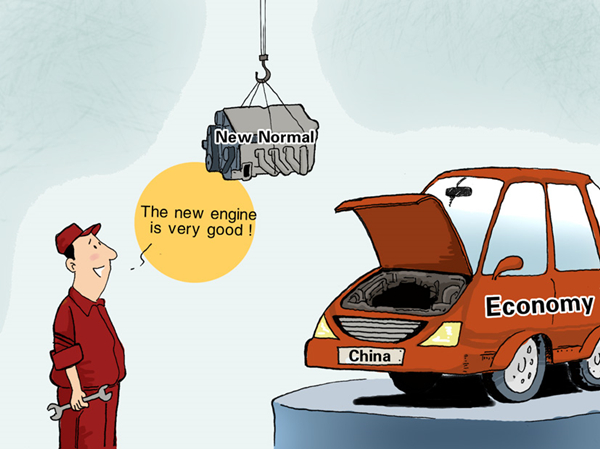The most important investment under the 'new normal'
- By Kerry Brown
 0 Comment(s)
0 Comment(s) Print
Print E-mail China.org.cn, March 10, 2015
E-mail China.org.cn, March 10, 2015
|
[By Zhai Haijun/China.org.cn] |
Over the last thirty years, perhaps the most significant capital that the Chinese government has accrued is not the trillions of foreign reserves in its central bank, or the value of fixed assets so much investment has gone into. The most important capital it has is in the form of reputational capital with the public gained through the continuously good level of GDP growth since 1980. Like a saver putting money in the bank, over all this period the Chinese government has been converting GDP into public confidence and saving that.
It had to do this, because economists and planners knew that one day the stellar GDP figures would diminish. It goes against the laws of sustainable development that, as Premier Li said in his March 5 Government Work Report, you can't continue to use resources and invest as heavily as you once did. Things have to change. New spaces for growth have to be found. The challenges of a developing economy are very different from a partially developed or developed one. That's just the way things are.
The new normal in China, therefore, where growth is "approximately 7 percent," is, according to this year's National People's Congress (NPC) session, one where the battleground shifts from raw GDP to better productivity, better quality growth, employment, and entrepreneurialism. This is a hybrid list, and can only work in an environment where, as Premier Li made clear, there are clear rules so everyone knows how to work together, but also a looser government role, more energy from the non-state and entrepreneurial sector, and more appetite for controlled risk.
The regulatory framework is the key thing, and something the NPC spent some time discussing. In the recent past, risk was controlled mostly by the central government. There were clear prohibitions against people taking too many chances, with strong controls through the fiscal and administrative system. But now China needs to embrace an era of innovation and adventure. In order to achieve this, powers need to be devolved more down to local governments. Rules need to be clearer, simpler and easier to implement. Everyone needs to have a clear idea of what the responsibilities and powers of other parties are. Once that is in place, then people can start to invent, devise, propose new ideas and approaches. In theory, that is how a creative society should work.






